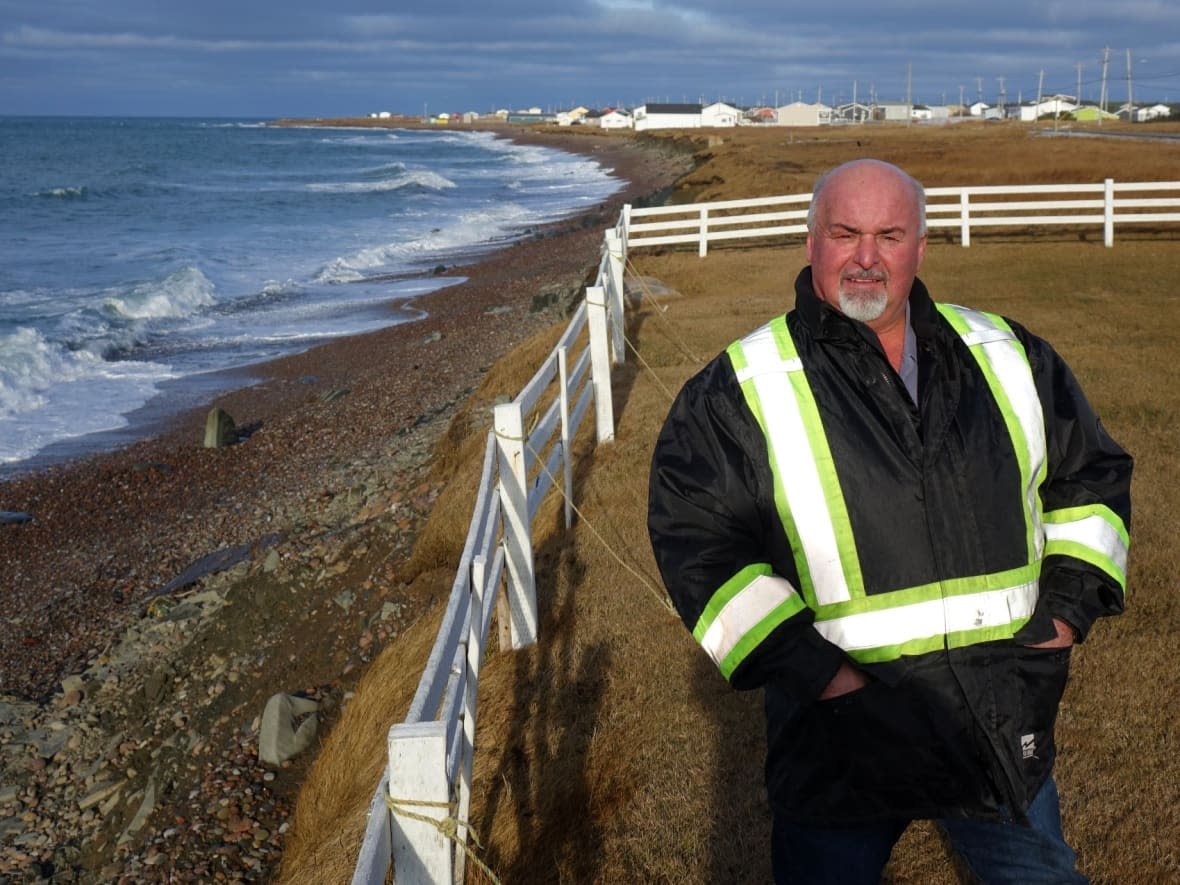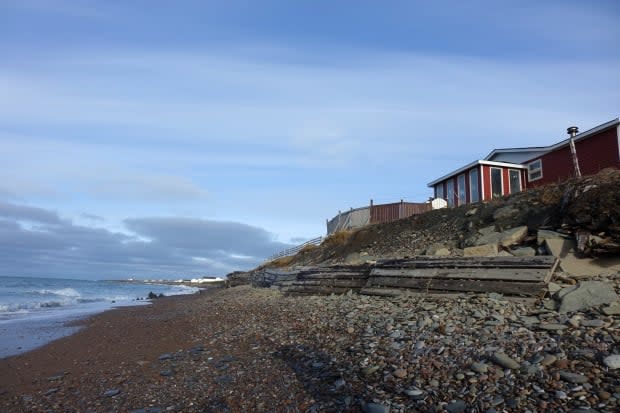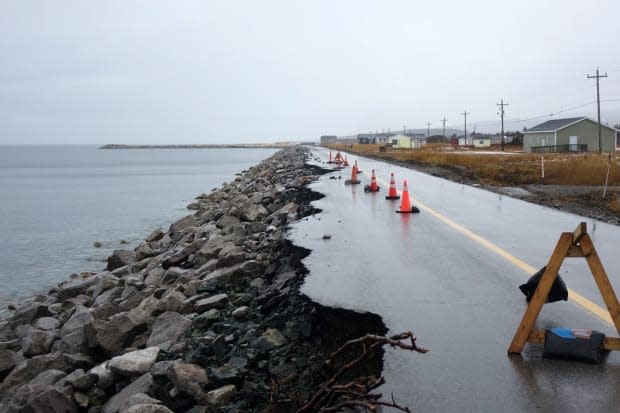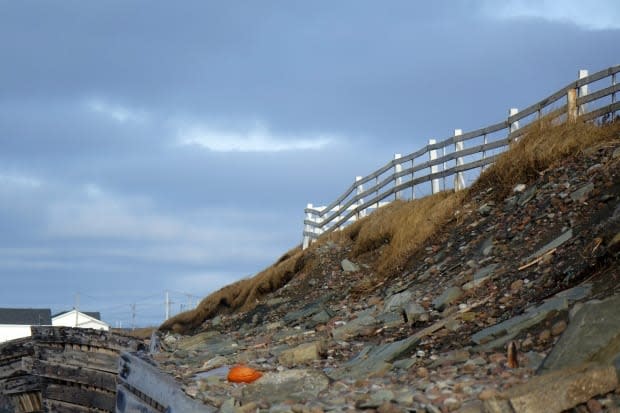In Mainland, N.L., this man's house could soon fall into the sea

Bit by bit, Gordon Oliver's backyard is falling into the ocean. The Mainland, N.L, resident has already moved his fence back twice — three metres each time. His house now sits on the edge of a cliff, a few metres from the water's edge.
"It's getting about the time now where I'm going to have to move," said Oliver, who built his house on an otherwise picturesque piece of land 35 years ago. "When we were kids we used to play softball here and you couldn't bat the ball over the bank. You got no problem to do it now."
All along the coast in Mainland, a local service district on the Port au Port Peninsula, property lines are slowly receding. Coastal erosion is nothing new in western Newfoundland but it could become more frequent — and more severe — with climate change.
"There's the runoff in the spring with the water coming off the land running over the bank. The ocean helps along with it too," said Oliver, whose home isn't insured. "I put a retaining wall down there and I looked out to my MHA to try and get stuff done, but nothing seems to work."

Destroyed road still in use
A few kilometres to the east, the main road in Fox Island River — the only way in or out of the community — is down to one lane. The other washed into the sea.
Despite the damage, cars and a school bus drive up and down Route 462 every day. In some places, a pylon and a few inches of pavement are all that separates the yellow line from a crater two or three feet deep.

"That is a very dangerous road right now and needs the utmost attention of government to ensure that it is safe to travel on," said PC MHA Tony Wakeham. "The plan to replace it needs to be on someone's desk right now.… [The road] is the only road in and out.
"It's not good enough to put pylons out.".
A tender for "slope repairs" to Route 462 was issued Nov. 29, after Radio-Canada requested an update on the government's plans for the road. It closes Monday. A long-term solution, requiring funds from Ottawa, is under consideration, according to Department of Infrastructure and Transportation spokesperson Brian Scott.
Fears of another Daniel's Harbour
Wakeham said the federal and provincial governments need to step in and help residents in local service districts like Mainland and Fox Island River, communities that he said don't have the means to prepare and adapt to coastal erosion.
"Leaving it up to an individual property owner, to say, 'It's your property, it's your problem,' I don't think that's good enough," said Wakeham, who fears a repeat of the tragic landslides that struck residents of Daniel's Harbour in 2007.
At the time, two homes slipped off a cliff, plunging 30 metres toward the ocean.

"We cannot wait until something happens. We saw what happened in Daniel's Harbour when coastal erosion happened. It wasn't until we saw houses falling into the ocean before we took action," Wakeham said.
Little recourse for property owners
Coastal erosion, the result of winds and water eating away the coastline, could intensify due to climate change, said Marion Tétégan Simon, research director of the Valorès Research Institute, in Shippagan, N.B.
"When we look at the different models, we see that storms will be bigger and more frequent, and with that higher frequency and size, we can expect more severe erosion," she said.

Tétégan Simon said several organizations in Atlantic Canada, including the Valorès Research Institute, are helping people learn how to adapt and prepare for the impacts of coastal erosion. But there's very little direct government support available to people like Gordon Oliver, she said, once erosion has already set in.
"As for funding or subsidies for erosion-related damages, that's another issue that needs to be discussed with our policy makers," Tétgan Simon said.


